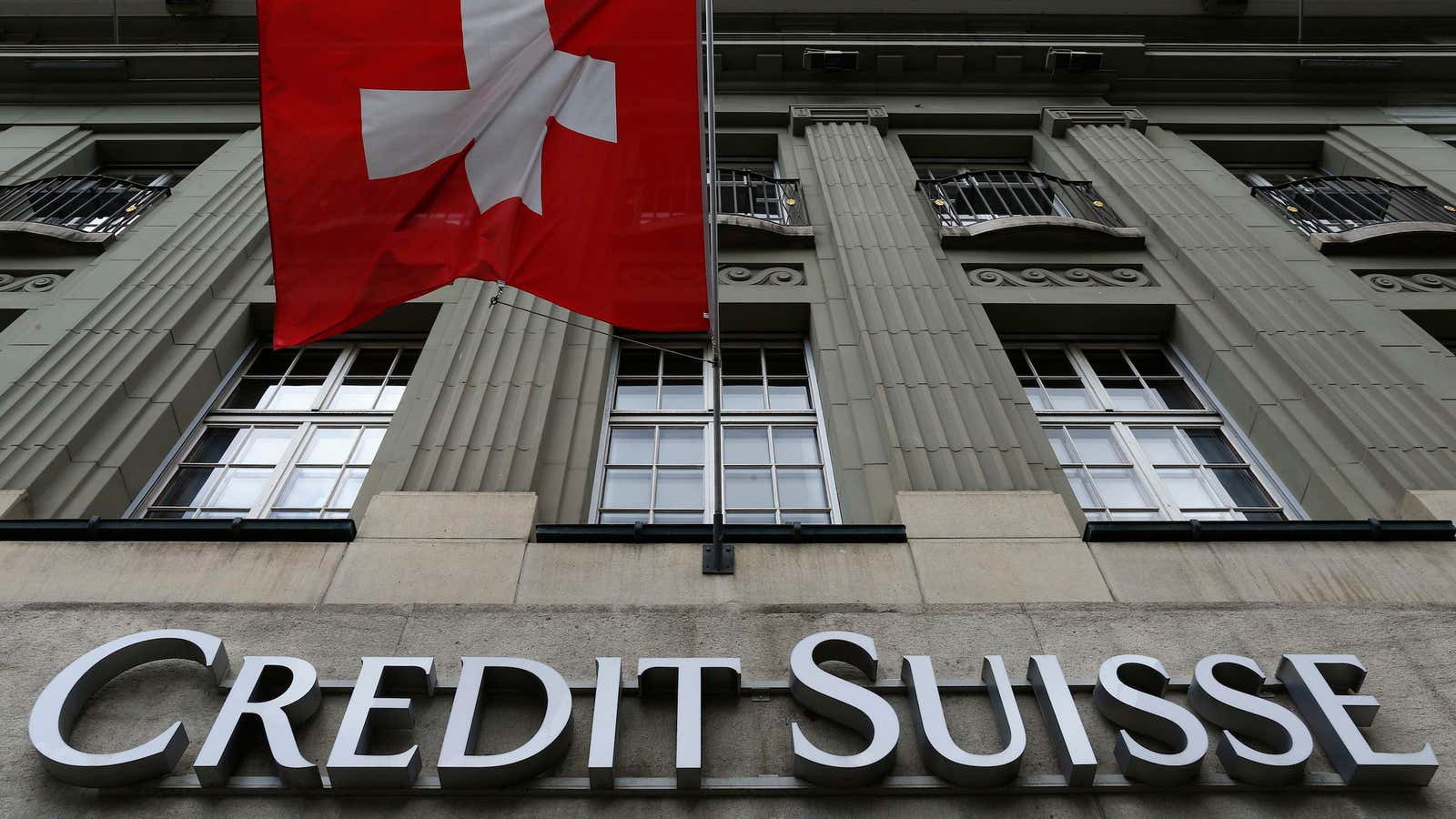(Updated May 19, 8:01pm ET)
Credit Suisse pleaded guilty to helping wealthy US individuals avoid taxes over a period of decades and agreed to pay more than $2.6 billion (Corrected: An earlier version of this post had the total as $2.5 billion) in fines.
“This case shows that no financial institution, no matter its size or global reach, is above the law,” said US attorney general Eric Holder in announcing the news this evening.
Here’s a rundown of what it means:
- The fine isn’t the first major penalty a bank has incurred for helping US individuals avoiding pay taxes. The firm isn’t even the first Swiss-banking giant to face tax-evasion charges. That distinction goes to UBS, which agreed to pay $780 million in restitution to the US government on similar charges five years ago (Swiss firms are known for their tax friendliness throughout the world, but US regulators have been cracking down.)
- The Justice Department filed legal paperwork this evening charging Credit Suisse with conspiring to aid tax evaders, according to the Wall Street Journal.
- Credit Suisse’s agreeing to plead guilty to its charges is a first for a major bank-holding company in some time. French bank Credit Lyonnais admitted guilt and agreed to pay a then-record $771 million penalty for making false statements to regulators a decade ago.
- Under the guilty plea agreement, Credit Suisse is paying $715 million to the New York Department of Financial Services run by Ben Lawsky, $100 million to the Federal Reserve, and roughly $1.8 billion (paywall) to the Justice Department.
- Lawsky’s DFS, which has supervisory authority over financial firms, including banks, that operate in New York State, has agreed not to revoke Credit Suisse’s state banking license. That would have been a major blow to the franchise, which has a massive footprint in downtown Manhattan.
- The guilty plea will not only put a dent in Credit Suisse’s reputation. It could also more directly harm its business because some pension and investment funds are prohibited from doing business with an entity that has pleaded guilty to a crime, as a Bloomberg report notes.
- The agreement also could have implications for Credit Suisse’s American-born CEO Brady Dougan, who some critics argue could be forced out as a result of a plea. That’s a big deal because Dougan had widely been viewed as a good manager by the Swiss government and analysts. “We deeply regret the past misconduct that led to this settlement,” Dougan said in a statement.
- BNP Paribas, another foreign firm, also is facing criminal charges over allegations that it violated sanctions on Iran and other countries, the Wall Street Journal has reported (paywall).
